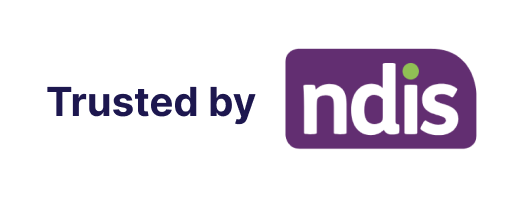Glossary
Access Request
A request to become a participant in the National Disability Insurance Scheme (NDIS) and access supports from the National Disability Insurance Agency (NDIA). It must be in the approved form and include information and documents as required.
Source: NDIS Act, s 18 and 19.
Access requirements
Eligibility checks relating to age, residency and disability that a person must meet before applying to access the NDIS.
The person must be under 65, an Australian citizen or permanent resident, and have either a permanent disability or require early intervention.
Source: NDIS Act, s 4.
Ages & Stages Questionnaire (ASQ)
A developmental screening tool that pinpoints developmental progress and identifies delays in children who are younger than 5.5 years.Assistive technology (AT)
Any device or system that allows individuals to perform tasks they would otherwise be unable to do or increases the ease and safety with which tasks can be performed.
Source: World Health Organisation
Assistive technology (AT)
Equipment or devices that help people do things they can’t do because of their disability. Assistive technology may also help people do something more easily or safely, and can reduce the need for supports over time.
Source: Our Guidelines (external)
Best practice in early childhood intervention
Guidelines that have been researched and evidenced to support the best outcomes for young children and their families and carers, where the child has a disability or there are concerns about their development.
Carer
A person or persons who provide care or support for a person with disability or child (where there are concerns about their development) and is not a paid support worker.
Child
A person who is under 18 years of age.
Under the early childhood approach, when the NDIS refers to a child, this means a person who is younger than 9.
People younger than 9 are supported through early childhood partners, and people 9 and above are supported through local area coordinators.
Child representative
The person or persons with parental responsibility for a child under 18 who can make decisions on their behalf. For some children, this may be an alternative adult(s) who is not their parent or a statutory authority.
Choice and control
The right for a participant to make their own decisions about their supports. This can involve choosing the supports they receive, including how and when the supports are provided, having a range of service providers to work with, and having the option to manage their own plan funding.
Community and other government supports/services
Goods, services, supports and assistance available to the general public which are not funded by the NDIS.
Community supports and services include social, study, leisure or sporting that are available in the community from local non-government groups such as men’s sheds or playgroups.
Other government supports and services include health, mental health, early childhood, school education, higher education, justice, transport, housing, child protection and family support, and employment services.
When describing other government supports and services, where possible, it is best to be descriptive about the specific kind of support you are referring to instead of the overarching term – so use ‘health, education, housing’, etc.
Community connections
Information provided by a local area coordinator to help people who are not NDIS participants make connections to the right supports and services to meet their needs.Community connections assist people with:
finding practical information relevant to their situation
connecting with community and other government services
connecting with other people like them for peer support
applying to the NDIS.
For children younger than 6 with developmental concerns, early childhood partners may offer early supports to the child and their family.
In this case, the family will be supported to develop an early supports plan.
For people aged 9 to 64, local area coordinators can provide support to develop community connections plans where appropriate.
Community connections plan
A document developed by a partner alongside a person with disability to provide them with a record of their goals, supports and referrals to community and other government linkages.
This is not a funded NDIS plan.
If a person who has a community connections plan becomes an NDIS participant, they will then receive a funded NDIS plan in place of the community connections plan.
Correspondence nominee
A person appointed to act on behalf of a participant in relation to activities under the NDIS Act that do not relate to a participant’s plan, for example, receiving copies of mail or making enquiries.
Correspondence nominees can be appointed by either the participant or the NDIA.
Source: NDIS Act, s 87.

